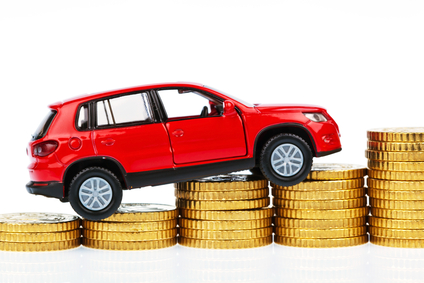 Sales of nearly all cars and trucks are up from October 2012 levels, The Wall Street Journal reports. Only the large car market saw a decline in sales from October 2012 to October 2013, with units sold taking more than a 50 percent drop. If you’re thinking of replacing your beater car with a new or used vehicle, crunch the true costs behind that purchase to determine how much you’ll need to pay up front or on a monthly car loan.
Sales of nearly all cars and trucks are up from October 2012 levels, The Wall Street Journal reports. Only the large car market saw a decline in sales from October 2012 to October 2013, with units sold taking more than a 50 percent drop. If you’re thinking of replacing your beater car with a new or used vehicle, crunch the true costs behind that purchase to determine how much you’ll need to pay up front or on a monthly car loan.
Pros and Cons of Leasing
Leasing offers you a way to get a brand new car for a lower monthly payment than you would if you were purchasing the car. When the lease agreement ends, turn in the car and spare yourself the hassle of negotiating a trade-in value. With leasing you also pay less up front than you would if purchasing a car.
In The New York Times, Marc Frons discusses the pros and cons of leasing and ways that the potential leaseholder can learn from his missteps. To lease your car the smart way, understand the hidden fees and costs you’ll face. The actual car purchase price and monthly payment are just a fraction of what you pay. You can be subject to a fee if you return the car at the end of the lease period without leasing another car from the dealer, or even if you purchase the car after the lease ends. You also can pay paperwork processing fees and end up with a high interest rate that makes leasing more expensive over time.
Calculate Real Costs of a New or Used Car
Kelly Blue Book’s five-year cost to own can help you understand how much that car you want really costs. It factors in financing, auto insurance, state fees, registration, maintenance and repairs, fuel and depreciation over a five-year period. Even if two cars have the same up-front cost, one can costs less to maintain over those five years. View the most economic cars by size or type, then use the information to help identify new or used vehicles that fit your budget and meet your needs.
Extended Warranty: Do You Need One?
Used and new car salesmen will try to sell you on the extended warranty. Edmunds offers advice to help you determine whether an extended warranty makes sense for you, including:
- If you plan on keeping the car for a long time versus using it for a couple of years, the warranty may make sense.
- If the warranty is backed by the dealership, it is less useful than one backed by the auto manufacturer.
- Before you buy any warranty, read the fine print to see what’s offered. Some offer coverage tiers and many do not cover common wear-and-tear parts.
- If you will not feel safe unless you buy the extended warranty, it can be worthwhile for peace of mind.
Understand Loan Payments
Even if you have poor credit, you can find lenders through Drivetime auto loans. Before you accept a loan, understand the terms and conditions down to the fine print. In general, new cars have lower interest and longer loan terms than used cars. The longer the loan term, the more you pay over the length of the loan.
Did you enjoy this post? Find more money saving tips here.
